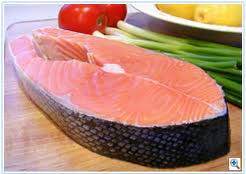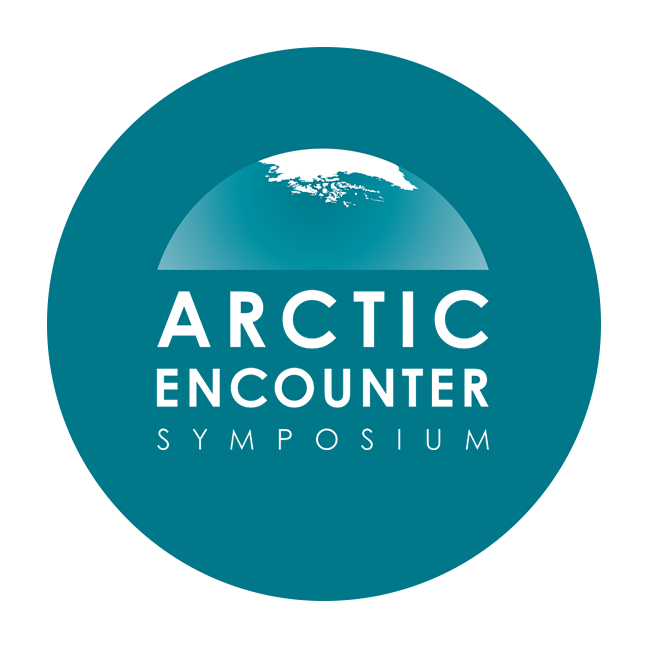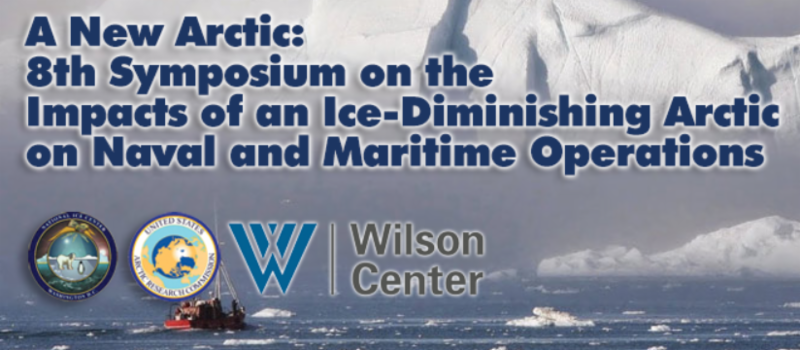|
|
|
|
|
|
|
|
Media
 The World is Losing Fish to Eat as Oceans Warm, Study Finds. The World is Losing Fish to Eat as Oceans Warm, Study Finds. Fish populations are declining as oceans warm, putting a key source of food and income at risk for millions of people around the world, according to new research published Thursday. The study found that the amount of seafood that humans could sustainably harvest from a wide range of species shrank by 4.1 percent from 1930 to 2010, a casualty of human-caused climate change. The New York Times
There's a Sled Dog Race Tougher Than the Iditarod, and a 78-year-old Crazy Enough to Try it. The battle wounds incurred over nearly two weeks in the Arctic wilderness were on display as Jim Lanier sat down for breakfast with his wife at a downtown hotel. He hardly made a move on his bacon and eggs. His fingers were stiff from frostbite. "They're still really sore," Lanier said as he eased his grip on his fork. "It's hard to tie my shoelaces - they're so sore." The Washington Post
 Two US Bills Could Advance American Presence in the Arctic. Two US Bills Could Advance American Presence in the Arctic. A pair of bills due to be introduced in Congress later this year could help strengthen the United States' role in the Arctic, say backers. The two bills - the Arctic Policy Act (APA) and the Shipping and Environmental Arctic Leadership Act (SEAL Act) - were both introduced late last year, but saw little movement before the session ended. Alaska Sen. Murkowski, a Republican, plans to reintroduce them this spring. Arctic Today
Atmospheric Scientists Offer Climate Change Clues in New Studies. Two new studies authored by atmospheric scientists at UAlbany and published in Nature Communications may offer us clues for future climate change projections. Arctic temperatures are warming at a rate more than twice as fast as the overall planet and the trend is not letting up, according to NOAA's most recent Arctic Report Card. Sea ice in the region is also now declining at an average rate of 12.8 percent per decade, relative to the 1981 to 2010 average. Phys.org
|
|
Future Events
 of the AAG includes over 8,500 geographers converging from the U.S., Canada, and nearly 60 other countries in a typical year including geographers, GIS specialists, environmental scientists, and other leaders for the latest in research and applications in geography, sustainability, and GIScience. of the AAG includes over 8,500 geographers converging from the U.S., Canada, and nearly 60 other countries in a typical year including geographers, GIS specialists, environmental scientists, and other leaders for the latest in research and applications in geography, sustainability, and GIScience.
 The 6th Annual Arctic Encounter Seattle, April 25-26, 2019 (Seattle, WA, USA). The sixth annual Arctic Encounter Seattle will engage the topic of innovation in the Arctic, specifically disruptive business and investment models, energy and power, climate research, national security, new economic and trade models, and popular media and awareness movements impacting the Far North. The 2018 Arctic Encounter Seattle drew over 300 participants from across Alaska, the U.S., and the world, including over 100 speakers, 32 sponsors, 11 media partners, fashion and photography installations, a live permafrost exhibition, 13 guest performers, fashion designers, and artist exhibitors to the downtown Seattle waterfront at Pier 66. The 2019 Arctic Encounter Seattle expects to increase engagement in new sectors and engage participants through policy debates, research presentations, performances, and more. The two-day Arctic Encounter Seattle will include an opening reception, two continental breakfasts, two keynote luncheons, a networking reception with Alaskan glacier ice cocktails, and a seated three course dinner including keynotes and live musical entertainment from the Far North. The Arctic Encounter is the largest annual Arctic policy and business conference convening in the United States, with partnerships and convening efforts worldwide. Registration is now open. Additional information is available here. The 6th Annual Arctic Encounter Seattle, April 25-26, 2019 (Seattle, WA, USA). The sixth annual Arctic Encounter Seattle will engage the topic of innovation in the Arctic, specifically disruptive business and investment models, energy and power, climate research, national security, new economic and trade models, and popular media and awareness movements impacting the Far North. The 2018 Arctic Encounter Seattle drew over 300 participants from across Alaska, the U.S., and the world, including over 100 speakers, 32 sponsors, 11 media partners, fashion and photography installations, a live permafrost exhibition, 13 guest performers, fashion designers, and artist exhibitors to the downtown Seattle waterfront at Pier 66. The 2019 Arctic Encounter Seattle expects to increase engagement in new sectors and engage participants through policy debates, research presentations, performances, and more. The two-day Arctic Encounter Seattle will include an opening reception, two continental breakfasts, two keynote luncheons, a networking reception with Alaskan glacier ice cocktails, and a seated three course dinner including keynotes and live musical entertainment from the Far North. The Arctic Encounter is the largest annual Arctic policy and business conference convening in the United States, with partnerships and convening efforts worldwide. Registration is now open. Additional information is available here.
North X North Festival, May 1-5, 2019 (Anchorage, Alaska USA).The third annual North x North Summit & Festival celebrates connection and culture across the North. The event features five days of conversations, workshops, exhibitions, performances, presentations, music, dance, installations, food, film and experiences highlighting Northern people, landscapes and cultures.The Summit (May 1-2), which is open to registered participants, focuses on resilience and research, with a special emphasis on gender and Indigenizing. The Festival (May 3-5) is open to the general public and features activities and conversations around climate, gender, innovation, food, indigenizing and earthquakes.
Lowell Wakefield Fisheries Symposium, May 7-10, 2019 (Anchorage, Alaska USA). This symposium aims to provide a forum for discussion on ways to facilitate effective cooperative research, a platform for scientific talks on the application and results of cooperative research, and opportunity to evaluate how such research might be best envisioned, applied and implemented. The symposium aims to involve participants from a variety of relevant marine industries, address these issues through facilitated discussion, identify best practices, and articulate a set of case studies for effective collaboration. The symposium also aims to involve scientists from a wide range of sectors, including state and federal agencies, universities, research institutes and industry science. This event is sponsored by Alaska Sea Grant College Program.
Arctic Science Summit Week, May 22-30, 2019 (Arkhangelsk, Russia). The Arctic Science Summit Week 2019 will take place in Northern (Arctic) Federal University and Northern State Medical University, Russia, Arkhangelsk. Under the auspices of International Arctic Science Committee, participants from more than 23 countries and regions will be involved.
** New this week ** Resilience in Rapidly Changing Arctic Systems, proposals close June 14, 2019. This joint Belmont Forum CRA calls for co-developed and co-implemented proposals from integrated teams of natural and social scientists, and stakeholders to address key areas of arctic resilience understanding and action. This collaboration of academic and non-academic knowledge systems constitutes a transdisciplinary approach that will advance not only understanding of the fundamentals of arctic resilience but also spur action, inform decision-making, and translate into solutions for resilience. The term "stakeholder" is used here in its broadest possible sense, allowing for co-development of projects with partners from, but not limited to, civil society, government, industry, NGOs, and Indigenous organizations.

Mark your calendars to attend IDA-8, which some have called one of the best Arctic gatherings around. Historically, this biennial symposium was co-hosted by U.S. National/Naval Ice Center (NIC) and the US Arctic Research Commission (USARC). In 2019, these partners will join forces with the Wilson Center's Polar Institute, and the Patuxent Defense Forum (run by the Patuxent Partnership) as co-hosts. The now 2-day symposium will be held in the Ronald Reagan Building Amphitheater, in Washington, DC. The event will focus on a broad cross-section of naval and maritime operations and issues in an ice-diminishing Arctic. The symposium brings together nationally and internationally recognized experts on Arctic governance, geopolitics, marine operations, infrastructure, science, and environmental observations, from the local, regional, and pan-Arctic scale. Information on prior symposia, including lists of speakers, video clips, and copies of presentations, is available here. Attendance is free, and registration will begin in Spring 2019. The event will be webcast live, and video recorded.
|
|

  
4350 N. Fairfax Drive, Suite 510
Arlington, VA 22203, USA
External links in this publication, and on the USARC's World Wide Web site ( www.arctic.gov) do not constitute endorsement by the US Arctic Research Commission of external Web sites or the information, products or services contained therein. For other than authorized activities, the USARC does not exercise any editorial control over the information you may find at these locations. These links are provided consistent with the stated purpose of this newsletter and the USARC Web site.
|
|
|
|
|
|
|
|
|